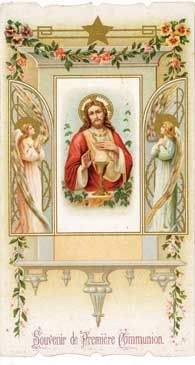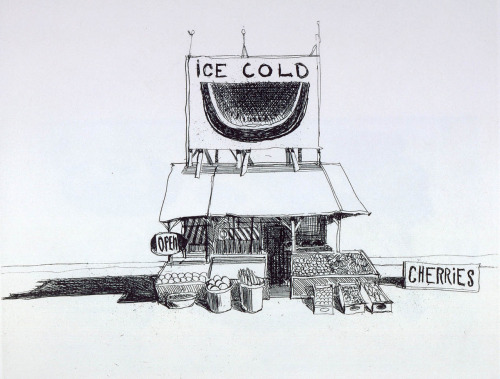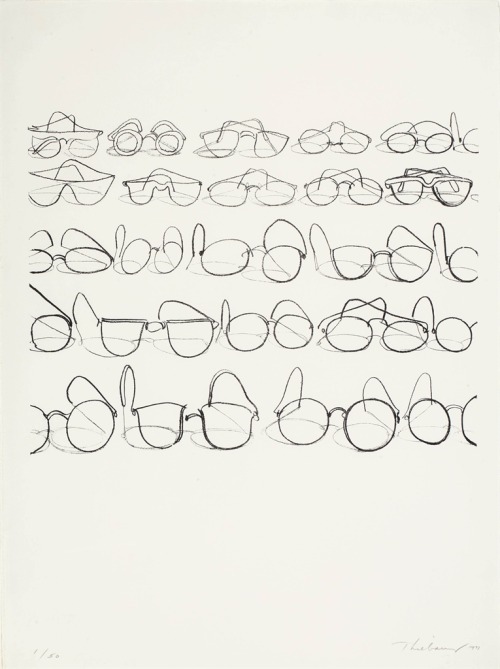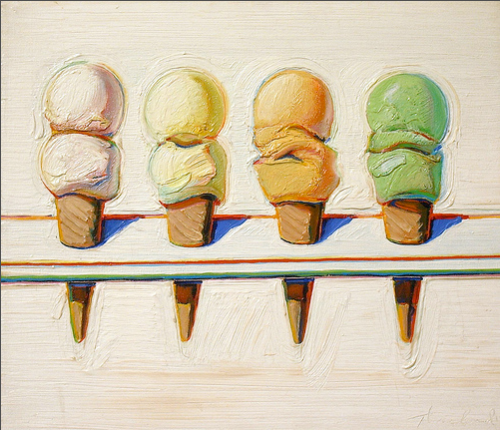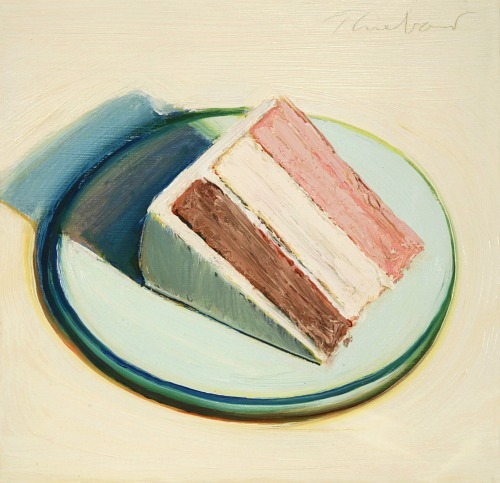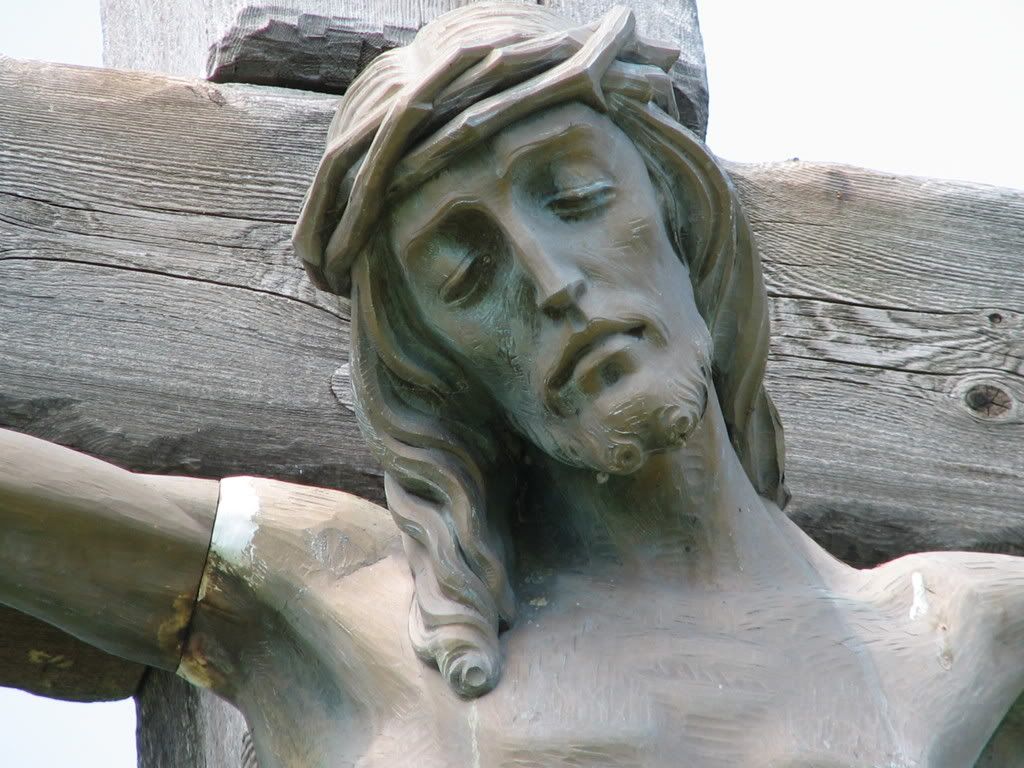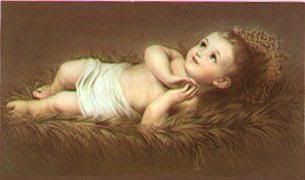+ JMJ +
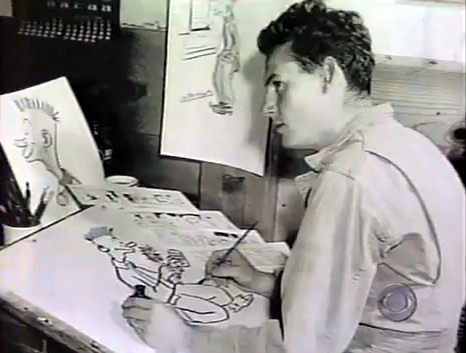

Wayne Thiebaud, drawing cartoons featuring the character "Aleck" at Mather Army Air Field, 1944. [Source]
Things About Thiebaud
(from the National Gallery of Art Classroom)

Display Cakes, 1963
Oil on canvas
San Francisco Museum of Modern Art
Oil on canvas
San Francisco Museum of Modern Art
[Source]
Wayne Thiebaud was born in 1920 in Mesa, Arizona. He moved with his family
to Long Beach, California, at age nine.

Balls, 1963
Oil on Canvas
Hirshhorn Museum and Sculpture Garden
Washington, DC, USA
Oil on Canvas
Hirshhorn Museum and Sculpture Garden
Washington, DC, USA
[Source]
Thiebaud grew up during the Great Depression. He was a boy scout
and worked in restaurants.

Lemon Meringue, 1964
From the series, Delights, 1965
Etching and Drypoint on Paper
In high school, he played basketball.

Half Cakes, 1964
Woodcut on Paper
Woodcut on Paper
[Source]
He took art classes and started drawing cartoons.

Stick Candy, 1964
Etching on Paper
Etching on Paper
Color Lipstick, 1964/1988
Hard-ground and Drypoint Etching
[Source]
Perhaps this experience with stage lighting gave him the idea to put bright light in his paintings.
As a teenager Thiebaud held several jobs, making posters for a movie theater
and painting signs.

Lemon Cake, 1964

Three Strawberry Shakes, 1964
[Source]
He drew the "in-between frames" (drawings
positioned between key changes in movement in order to make animation play
smooth) for such cartoons as Goofy and Pinocchio.

Man Sitting - Back View, 1964
Oil on canvas
Albrecht-Kemper Museum of Art
St. Joseph, MO, USA
[Source]
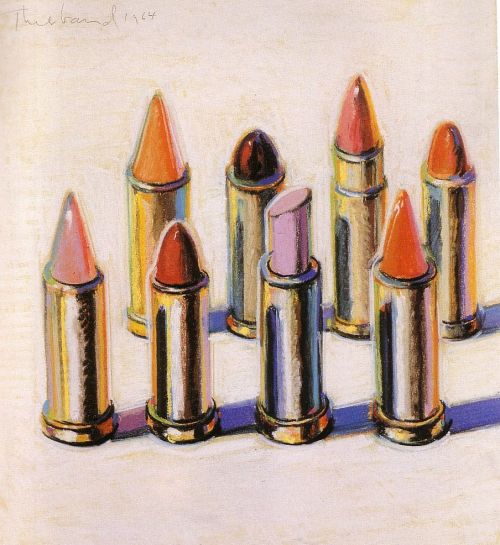
Eight Lipsticks, 1964
[Source]
He married and settled in Los Angeles and worked
as a commercial artist and illustrator.
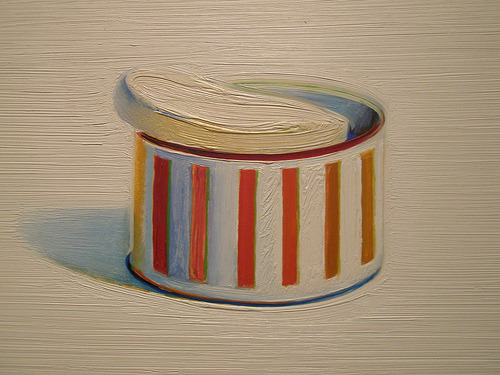
Powder with Puff, 1966
Milwaukee Art Museum
Milwaukee, Wisconsin, USA
[Source]
At age twenty-nine, he went back to college and received degrees in art, art history, and education.

Glassed Candy, 1969
Pastel on Paper
Pastel on Paper
[Source]
He began teaching art to college students and decided to become a serious painter himself.
In 1961, Thiebaud's food paintings—images of cakes, pies, candy, gumball machines, and deli counters painted with thick paint in bright colors—were exhibited in New York.

Gumball Machine, 1971
From Seven Still Lifes and a Silver Landscape portfolio
Color Linocut
Color Linocut
[Source]
They were a big hit!

Shoe Rows, 1975
Aquatint / Etching
[Source]
Though some scholars called Thiebaud
a Pop artist because he painted popular consumer goods, he said he painted
them out of nostalgia.
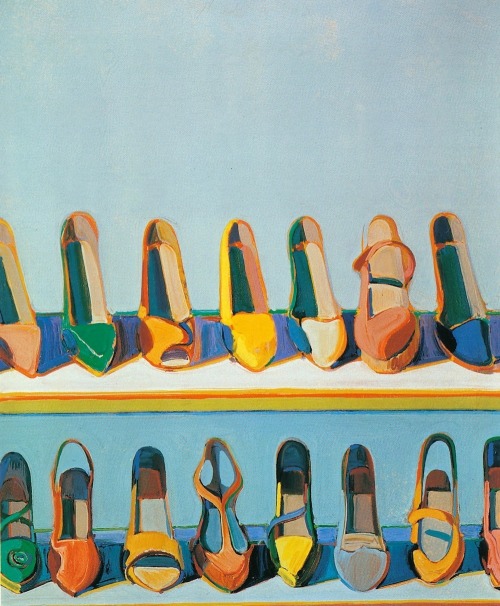
Shoe Rows, 1975
[Source]
They reminded him of his boyhood and the best of America.
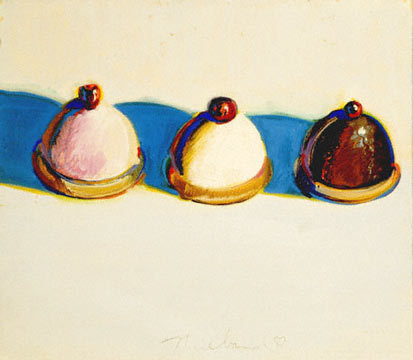
Cakes, 1963
Oil on canvas
[Source]
Thiebaud explained: "My subject matter was a genuine sort of experience that came out of
my life, particularly the American world in which I was privileged to be .
. . . I would really think of the bakery counters, of the way the counter was
lit, where the pies were placed, but I wanted just a piece of the experience.
From when I worked in restaurants . . . [it was] always poetic to me."
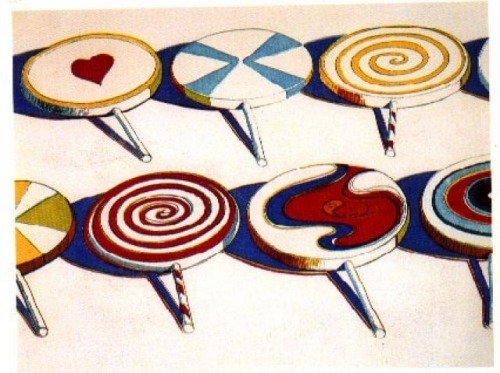
Big Suckers, 1971
Private Collection
Private Collection
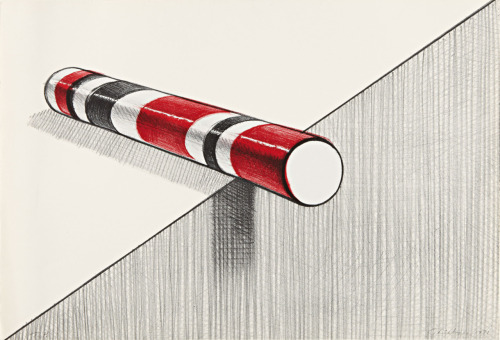
Candy Cane, 1971
Unique Lithograph in Colors
[Source]
He made still lifes of neckties, eyeglasses, lipsticks, even cows and dogs.

Candy Stick Rows, 1980
Color Lithograph
[Source]
He also painted large portraits of human figures, applying thick paint in bright colors against stark white backgrounds.

Big Candy, 1980
Color Lithograph
[Source]
Thiebaud went on to paint cityscapes—from the steep hills of San
Francisco to the colorful landscapes of the Sacramento Valley in
California.

Dark Cake,1983
Color Woodblock
[Source]
Wayne Thiebaud retired from full-time teaching in 1990. He lives in Northern California and continues to paint.

City Edge, 1988
Spitbite Aquatint and Soft-ground Etching
[Source]
